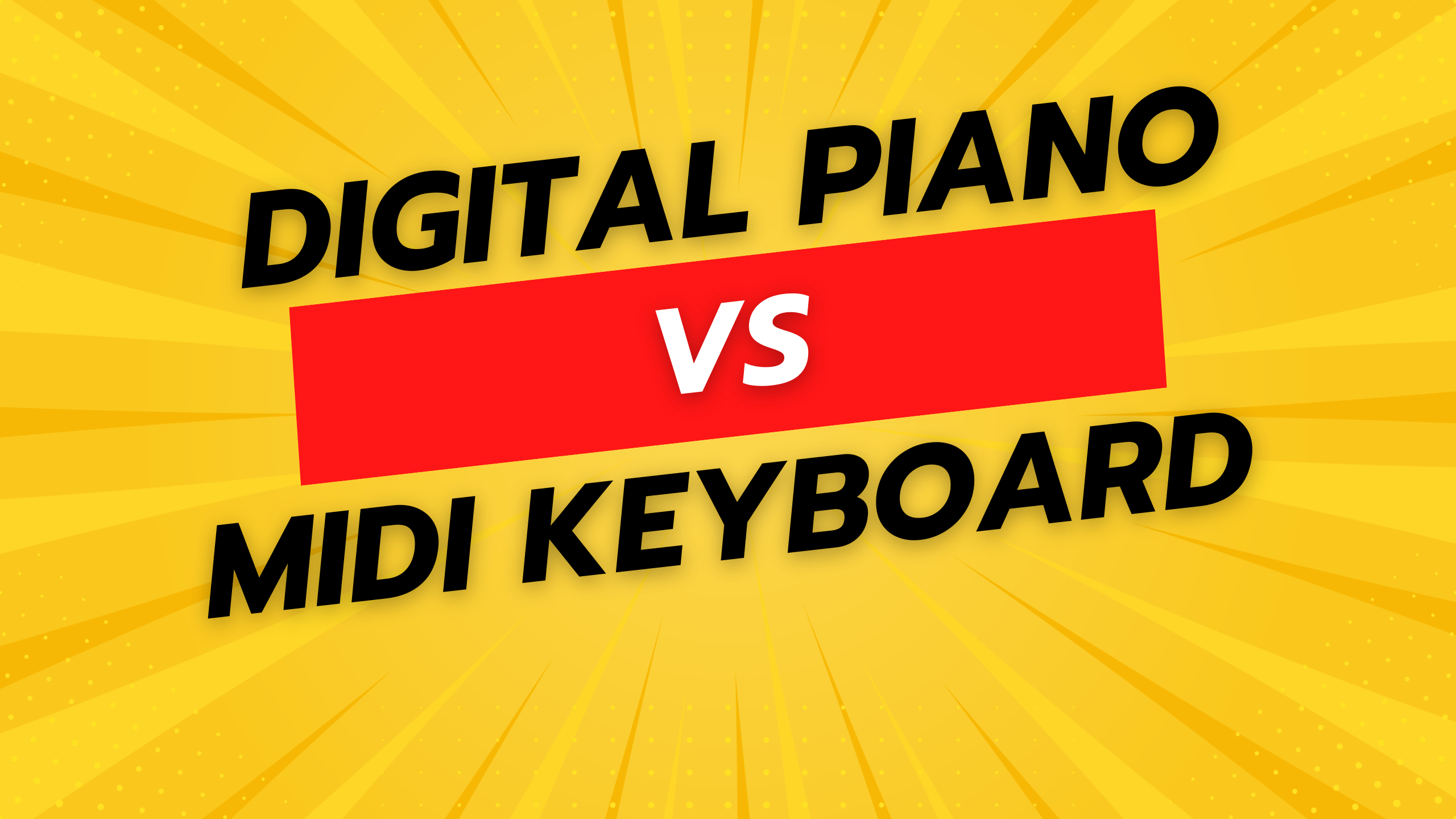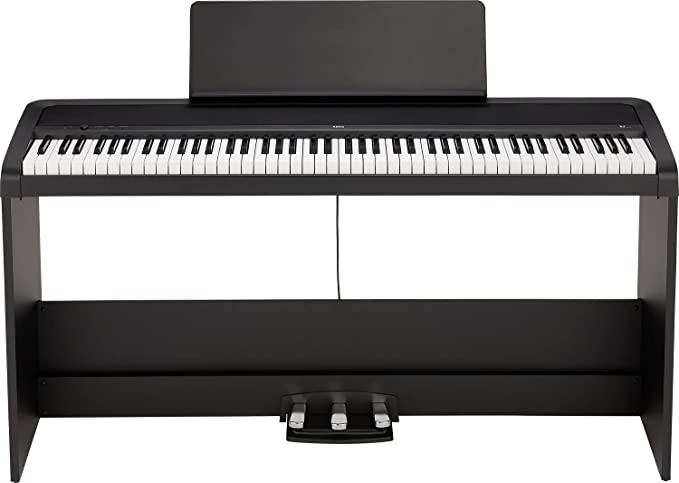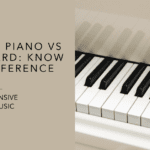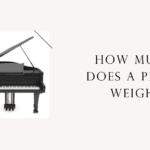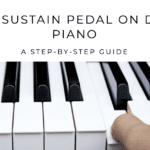Digital Piano vs Midi Keyboard
Curious about the difference between a Digital piano vs MIDI keyboard but not certain which is right for your needs? Choosing between the two comes down to understanding the nuances of their various uses.
Digital pianos are stand-alone instruments well-suited for playing classical music, jazz, pop, and many other genres. With its full sound, weighted keys, and advanced technology options, it is easy to create a realistic piano performance with a digital piano.
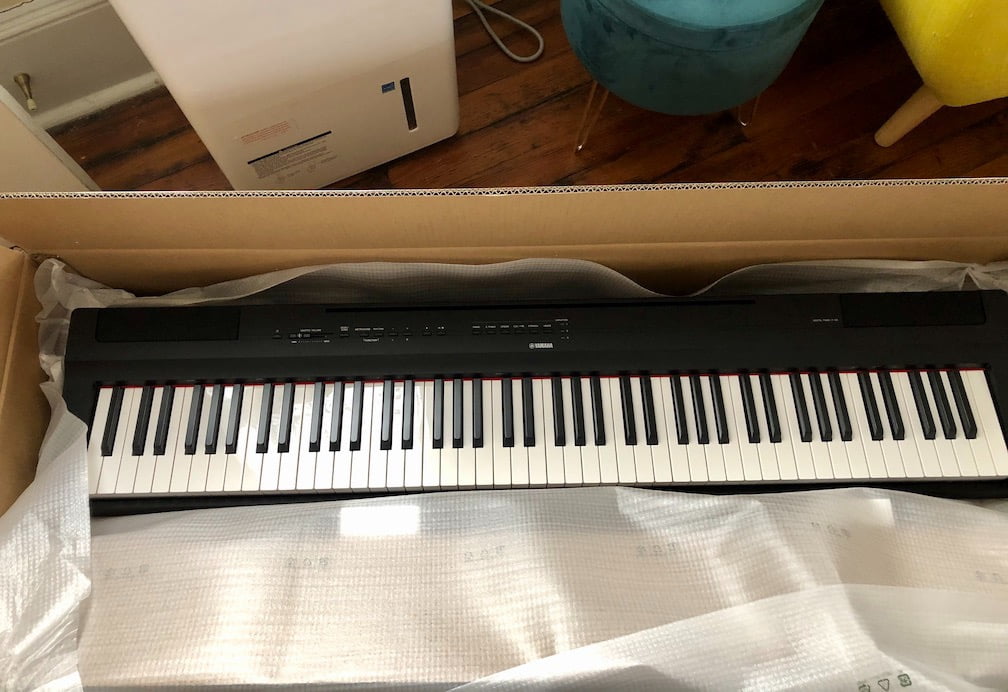
MIDI keyboards, on the other hand, are ideal for creating original compositions. It is possible to use them as master controllers in any digital environment with software like audio production tools or computer games. Despite their ability to produce sound from an onboard synthesizer engine or software programs, MIDI keyboards do not compare to the real piano playing experience.
Digital Piano
| Image | Product | Feature | Price |
|---|---|---|---|
Top Pick | 1. Korg B2SP
| Drawing on more than seven decades of experience in musical instrument design and craftsmanship, Korg’s B2SP delivers impressive sonic realism with an intuitively responsive key action. | Check On Amazon |
 | 2. Yamaha P-125
| The Yamaha P-125 is a highly-rated digital piano that is popular among both beginner and advanced pianists. | Check On Amazon |
 | 3. Yamaha P45
| This high-quality stage piano has been designed with input from some of today’s top touring artists and boasts a wide range of sounds including electric pianos plus strings and organs sampled from Yamaha’s famed CFX concert grand. | Check On Amazon |
 | 4. Casio PX-870
| This slim and stylish digital piano features Casio’s AiR Sound Source for realistic acoustic piano sound, along with hundreds of additional sounds and effects. | Check On Amazon |
 | 5. Casio PX-770
| The Casio Privia PX-770 is an affordable digital piano that offers a realistic piano sound and feels. | Check On Amazon |
Digital pianos are great for musicians of all levels, from beginners to advanced players alike. They provide great sound quality, with realistic and dynamic tones, as well as a wide range of sounds and options for playing different styles of music. They are also relatively lightweight and portable, making them great for travel and easy to store.
Let’s dive further into the features of digital pianos:
Sound Quality
The sound quality of a digital piano or midi keyboard is often the deciding factor when picking between the two. Digital pianos almost always have higher-quality speakers and superior onboard sampling technology that creates a more realistic piano sound.

Midi keyboards are often less expensive than digital pianos, but their sound can be dull and not very realistic. The sound of a midi keyboard is produced by an internal synthesizer that has been programmed to mimic the sounds of acoustic instruments like a piano, string instruments, and drums, but it may lack subtle nuances.
Digital pianos typically have a wide variety of sounds including many made to recreate realistic acoustic instruments like strings and brass. In addition, some digital pianos also allow users to customize the onboard reverb settings for even more instrument options.
Weight and Size
Digital pianos and MIDI keyboards vary in their make-up, size, and weight, although most digital pianos will be heavier than most MIDI keyboards. Generally, digital pianos will be bulkier in design, taking up more space with features such as a stand, covering, or built-in speakers. These features are also much less possible with many MIDI keyboards due to the lack of key weights or springs on which to lay sheet music or other items.
The weight varies drastically depending on what type of digital piano you purchase and its size. Portable options are a great choice if weight and size are considerations since they usually have very slim designs and some manufacturers provide retractable stands for more convenience. Newer models of digital pianos weigh anywhere from 35 pounds to 250 pounds – worth keeping an eye out for when shopping around for the right instrument. Some even provide optional accessories such as covers, bench seating, pedals, and much more that add further weight to a larger model unit as well.
MIDI keyboards often come with minimal accessories making them lightweight and usually much smaller than traditional digital pianos, adding convenience if mobility is desired. They come in sizes ranging from 25 keys all the way up to 88 keys making it easier to decide what kind will best suit your needs depending on how advanced you wish your repertoire of music to sound. Many of these smaller units even include Bluetooth technology allowing for fast connection with computers or DAWs ( Digital Audio Workstations). Prices also tend to vary almost as much in extreme weather conditions however portability considerations should always play an important role before deciding which one is suitable for you.
- You Also Might Like: How to Pick the Perfect Piano Learning Method in 2023
Midi Keyboard
A MIDI keyboard is a great way to get a lot of value out of a digital instrument. MIDI stands for Musical Instrument Digital Interface and it allows the keyboard to be connected to a computer, laptop, or even a synthesizer. MIDI keyboards offer many features and options, allowing you to control MIDI instruments and create music that you can use with your computer or in the studio.
| Image | Product | Feature | Price |
|---|---|---|---|
Top Pick | Arturia KeyStep
| The Arturia KeyStep is a compact and versatile MIDI controller that lets you easily perform, produce, and compose music. With its intuitive interface and advanced features, this keyboard opens up a world of creative possibilities. Plus, its small form factor makes it perfect for on-the-go use. So why wait? Take control of your music today and unleash your creativity with the Arturia KeyStep. Order yours now! | Check On Amazon |
 | Nektar SE49 | The Nektar SE49 is a high-performance MIDI controller that transforms how you play, produce, and perform music. With its 49-key velocity-sensitive keys and a plethora of customizable controls, the SE49 enhances your creativity and allows you to bring your musical visions to life with ease. Don’t settle for ordinary music production. Experience the power of the Nektar SE49 today and take your music to the next level. Order now! | Check On Amazon |
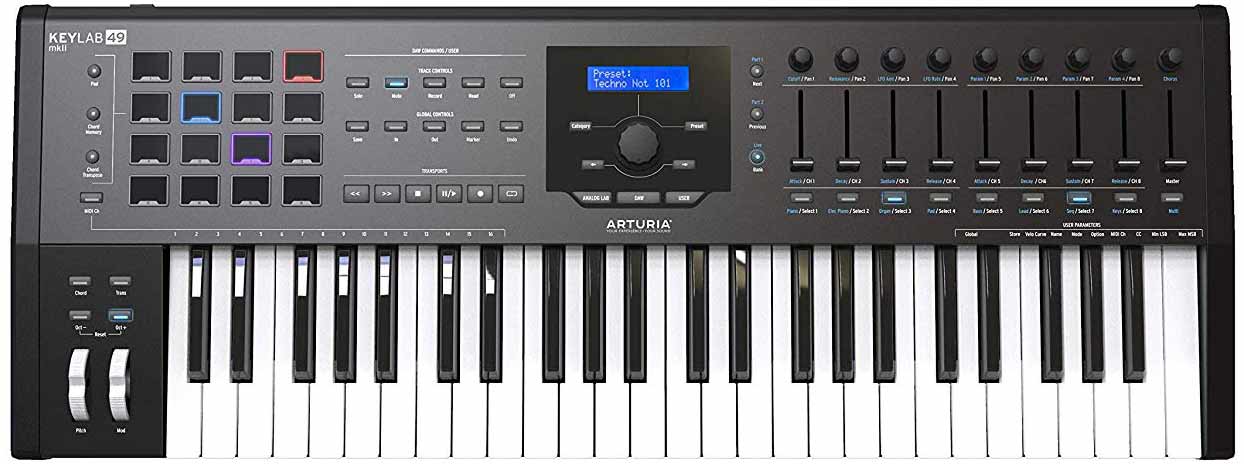 | Arturia KeyLab MkII | Unleash your creativity with the Arturia KeyLab MkII, a high-end MIDI controller that offers production and performance possibilities. With its powerful software, customizable controls, and premium build quality, this keyboard is the ultimate tool for musicians, producers and composers. Transform the way you make music. Get your hands on the Arturia KeyLab MkII today! Order now! | Check On Amazon |
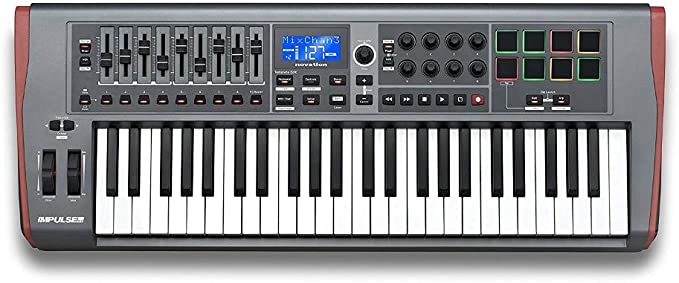 | Novation Impulse | Transform your music production with the Novation Impulse, a premium MIDI controller that combines versatility with intuitive control. With its 8 backlit drum pads, responsive faders and endless customization options, the Impulse provides the perfect platform to bring your musical ideas to life. Don’t miss out on this game-changing tool. Order the Novation Impulse today and take your music to the next level! | Check On Amazon |
 | KAWAI VPC1 | Experience ultimate piano playing with the KAWAI VPC1, a premium MIDI controller designed to deliver a truly authentic piano playing experience. With its weighted keys, advanced action technology and realistic piano sound, the VPC1 provides unmatched touch, control and tone. Elevate your playing and make every note count. Order the KAWAI VPC1 today and experience the ultimate piano-playing experience! | Check On Amazon |
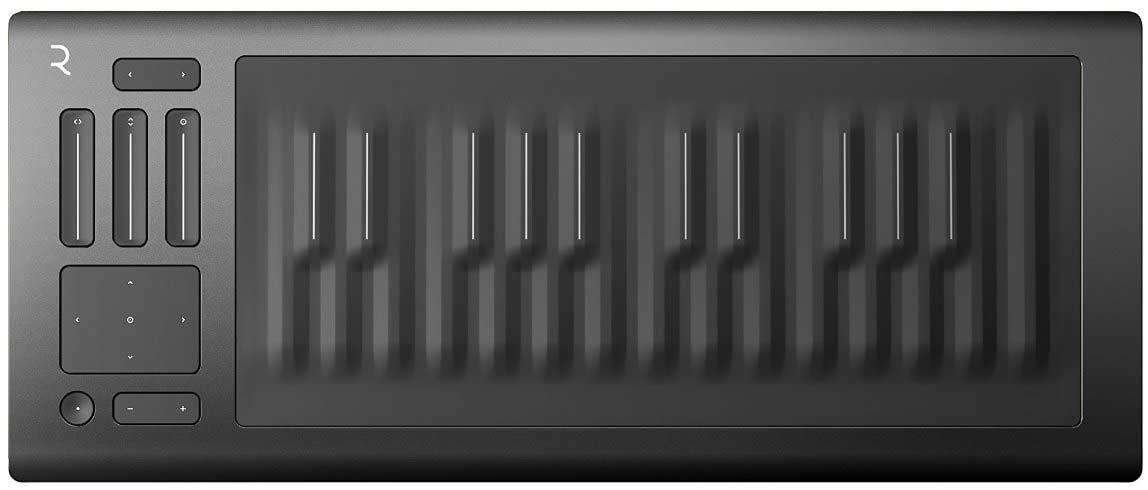 | ROLI SEABOARD | Transform how you play music with the ROLI SEABOARD, a revolutionary MIDI controller that lets you bring your musical visions to life. With its unique touch-sensitive keys, intuitive interface and advanced software, the SEABOARD lets you explore new frontiers in sound and expression. Don’t settle for ordinary musical performance. Get the ROLI SEABOARD today and experience a new dimension in musical creativity. Order now! | Check On Amazon |
Let’s take a look at the features and advantages of MIDI keyboards:
Comparison
When selecting the right instrument for your needs, it can be difficult to choose between a digital piano and a MIDI keyboard. Each has certain advantages and drawbacks you must consider before purchasing.
Let’s take a look at the differences between a digital piano and a MIDI keyboard so that you can make a decision:
Sound Quality
Sound quality is one of the most important considerations when determining which instrument to purchase. A digital piano is generally applauded for its richness and resonance of timbre. A digital piano’s sound will closely emulate that of an acoustic piano, making it an excellent choice for practice and live performance alike.
Midi keyboards, on the other hand, produce sound digitally and may be lacking in fullness or timbre compared to an acoustic or digital piano. This can be improved by adding external sounds, such as synthesizers and samplers, to create a richer sonic palette. Additionally, many modern midi keyboards are outfitted with weighted keys that simulate realistic responses while playing grand pianos or Hammond organs.
Weight and Size
When it comes to weight and size, digital pianos typically have a more traditional form factor than midi keyboards. Both digital pianos and midi keyboards come in various sizes, but the nature of digital pianos makes their average size larger than midi keyboards.
Digital piano keys are usually heavier than midi keyboard keys as they tend to be weighted with either weighted or graded hammer action. This means they feel closer to the performance of an acoustic piano and offer a greater range of dynamic expression. Conversely, many keyboards lack this same weight complexity which is why some people cannot often control the range and expressions that come along with playing a real instrument.
Size-wise, the majority of digital pianos on the market today range from around 48” to 54” in width while midi keyboards range from roughly 24” to 40” in width making them much more well-suited for portability and accessibility needs. In either case, it is important to note that accessorizing these instruments with stands and benches may increase their overall size as well as cost.
Cost
Cost is an important factor for any music equipment purchase. In general, digital pianos tend to be more expensive than midi keyboards, though there can be a broad range of price points for both types of instruments.
- Digital pianos are typically priced between $500 and $2000, depending on the features and specifications.
- A quality midi keyboard could cost anywhere from $150 to $1000 depending on the features and what you plan to use it for.
- You can also find starter packs for digital pianos and midi keyboards with extra accessories like headphones and stands.
When considering your purchase decision, it’s important to think carefully about your individual needs and budget so that you can make the right purchasing decision for you. It may be that a more basic model of either a digital piano or midi keyboard provides everything you need without breaking the bank.
Conclusion
In conclusion, digital pianos offer an ideal balance of features and price for new piano players. They are similar to traditional acoustic pianos in that players can easily transition from one to the other. Midi keyboards are better suited for advanced musicians who need to control both sets of instruments.
However, whichever instrument you choose should be based on your skill level and goals as a musician. If you’re starting, the digital piano is probably your best bet. On the other hand, experienced players may want to consider adding a midi keyboard to their arsenal.

